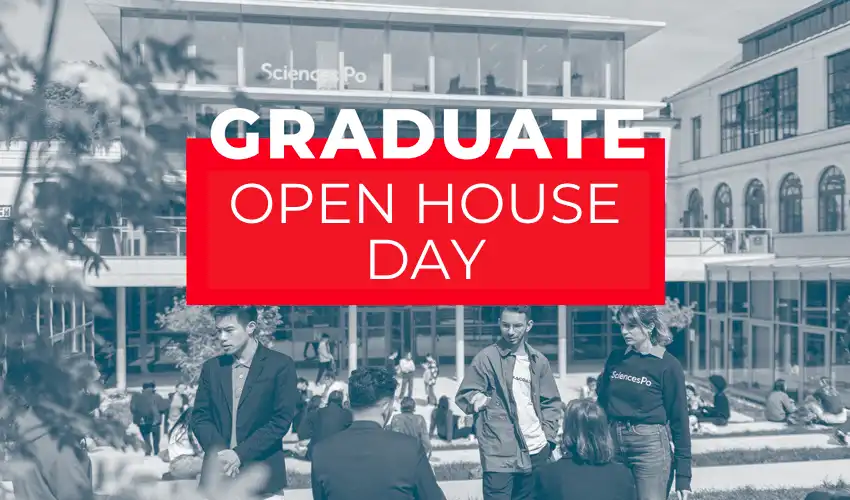Home>YLS 2021 - The Changing Nature of Armed Conflict
18.01.2021
YLS 2021 - The Changing Nature of Armed Conflict
Replay the panel discussion on "The Changing Nature of Armed Conflict" and read the summary below.
THE CHANGING NATURE OF ARMED CONFLICTS (PANEL 1)
Chaired by: Thierry Balzacq, Professor of Political Science, Sciences Po; Professorial Fellow at CERI-Sciences Po. | Student Greeter: Mathea Bernhardt, PSIA student, Master in International Development.
- Niagalé Bagayoko, Political Scientist, Chairman of African Security Sector Network
- Jean-Michel Betran, PSIA student, Master in International Security
- Angela Kane, former UN High Representative for Disarmament Affairs and Under-Secretary-General for Management in the United Nations ; PSIA Faculty
- Nadine Machikou Ngameni, Professor of Political Science, University of Yaoundé II, Cameroun
- Peter Maurer, President, International Committee of the Red Cross (ICRC)
Panelists discussed how current conflicts, mostly intra-state and involving non-state actors, are leading to a deep change of practices of international organizations and humanitarian aid.
Changing nature of conflicts: key trends
Chairman of African Security Sector Network Niagalé Bagayoko began the discussion by explaining how the security environment changed radically due to a multiplicity of factors. She drew attention to the conflict in Sahel: “Too often, it is through the lens of terrorism that violence and conflict are approached in this region,” she says. But a variety of conflicts, actors, motivations, and actions exist on the ground. For instance, different jihadists groups are active, but they are not part of the same global organization and do not share the same logics of action, some being closed to any negotiation. Other groups such as militias and criminal networks proliferate though they do not fight along with terrorist units. Bagayoko also mentions that state defense forces are involved in violations of human rights.
Beyond this fragmentation of tensions, the five panelists highlighted the issue of climate change as a growing cause of tensions. Student speaker Jean-Michel Betran mentioned the desertification of the lake Chad as an example of climate change being a conflict multiplier, as it creates competition for resources, which in turn are increasing their scarcity. Peter Maurer, President of the International Committee of the Red Cross, agreed that climate change is already creating tensions between agriculturalists and pastoralists in Sahel.
The United Nation’s address to new conflicts
Angela Kane talks about the answer of the international organizations in light of the current new threats. In the United Nations charter, “the word war does not even come up. There are references to maintenance of international peace but that is basically the toolbox of the UN.”
But today, she emphasizes that the international community must address a new type of conflict : “the nature of conflict has changed and fighting between two or even more states has taken a back seat” she said. Current security challenges are consequences of economic, demographic, and societal tensions that are trans-national in nature. Furthermore, conflict does not always occur between armies. They rather encompass non-state actors that seek to destabilize already fragilized or collapsed governments by targeting civilians.
“These are among the reasons for the demands on the UN go far beyond the traditional deployment of peacekeepers to monitor a border or to maintain a ceasefire” she explains. Therefore, since the 1990s, the UN has issued a growing number of preventive efforts, of nation-building resolutions, with the aim to consolidate political and judicial institutions. However, this new approach comes with more and more tasks to be fulfilled, and thus complexifies the work of the UN.
As humanitarian assistance is more fragilized, states still have a role in conflict resolution
Beyond the intervention of the international community, Peter Maurer reminds the key role that states play in conflicts. He argues that the changing nature of conflict makes state intervention even more necessary, in a context where humanitarian assistance is unable to tackle growing unstable environments, and where states remain actors that support more or less directly militant groups. “Today we see a declining number of people dying from the direct impact of war, but at the same time we also see an exponential increase in fragility and disruption connected to warfare in many fragile contexts” he argues. “Fragilities are systemic. Systems are breaking down: health systems, water systems, habitats, markets and educational systems.” In this context, he advocates in favor of new types of assistance and protection and new formulas of “burden sharing among the international community.”
Though he advocates for state action, he also warns against the tendency to link humanitarian work to political objectives, as he deems it exposes humanitarian actors much more prominently to violence.
Peacebuilding needs a more human-centered approach
All panelists pointed out the key role of a human-centered approach to contribute to a long-lasting peace. The student panel highlighted that “conflict within states are often synonyms of the disrespect of people's entitlement to their basic rights, […] having a hard military and counterterrorism approach is not a long-lasting solution.” In particular, Nadine Machikou advocated for a bottom-up approach. She argued that the Western view of the continent since colonization reduces it to the role of victim and deprives it of a future. According to her, compassion becomes a tool of power as aid takes the form of vertical and bureaucratic action, without the participation of the local population. “We have to come out of a regime of imperialistic compassion in our policies. Currently the policies are top down and thus fail to identify emerging voices." she concluded.
(c) An article written by Aude Dejaifve, PSIA student in the Joint Master in Journalism and International Affairs, 2021
More information about the Youth & Leaders Summit 2021. Watch the sessions replays.
Virtual Graduate Open House day, October 2025

On 18 October 2025: meet faculty members, students and representatives and learn more about our 30 Master's programmes.